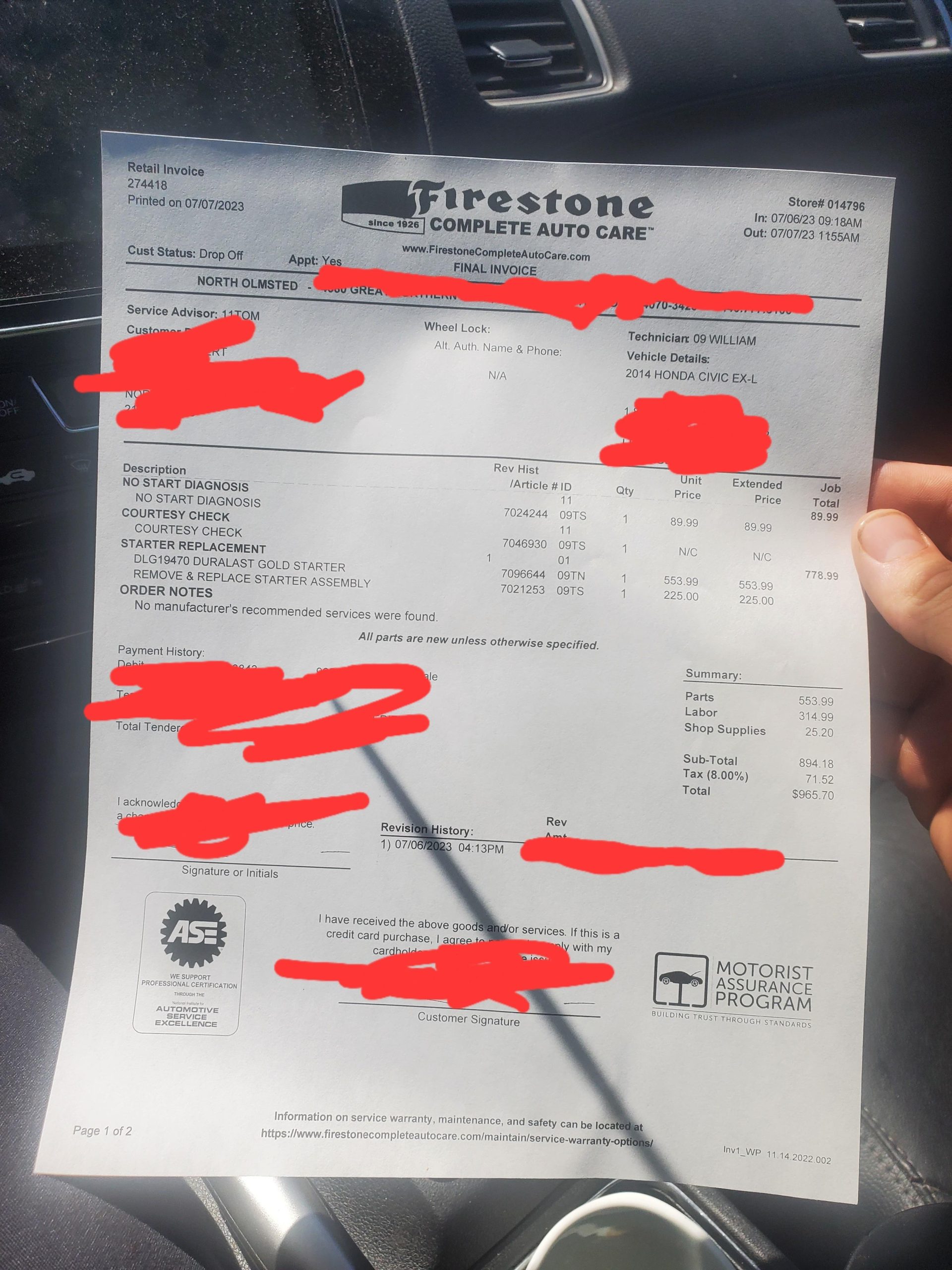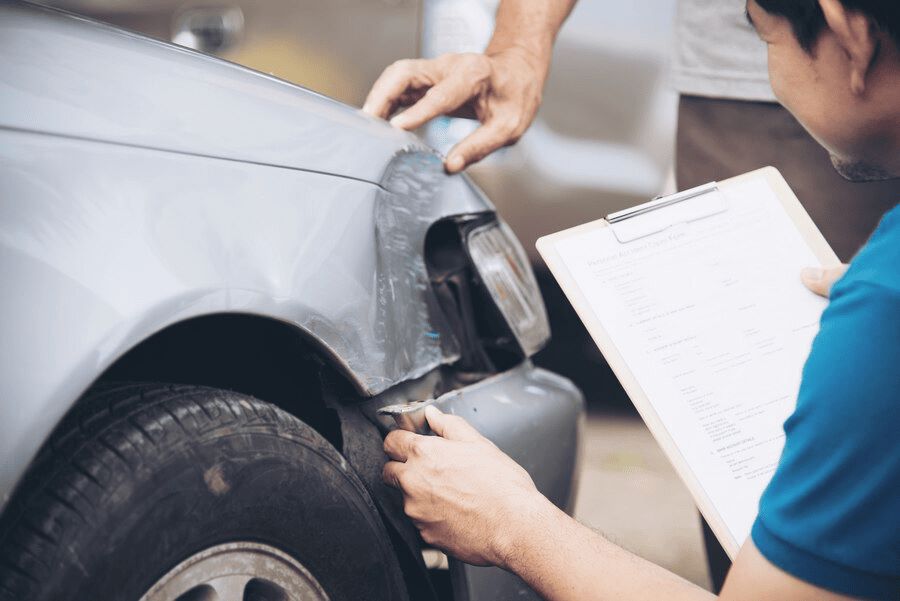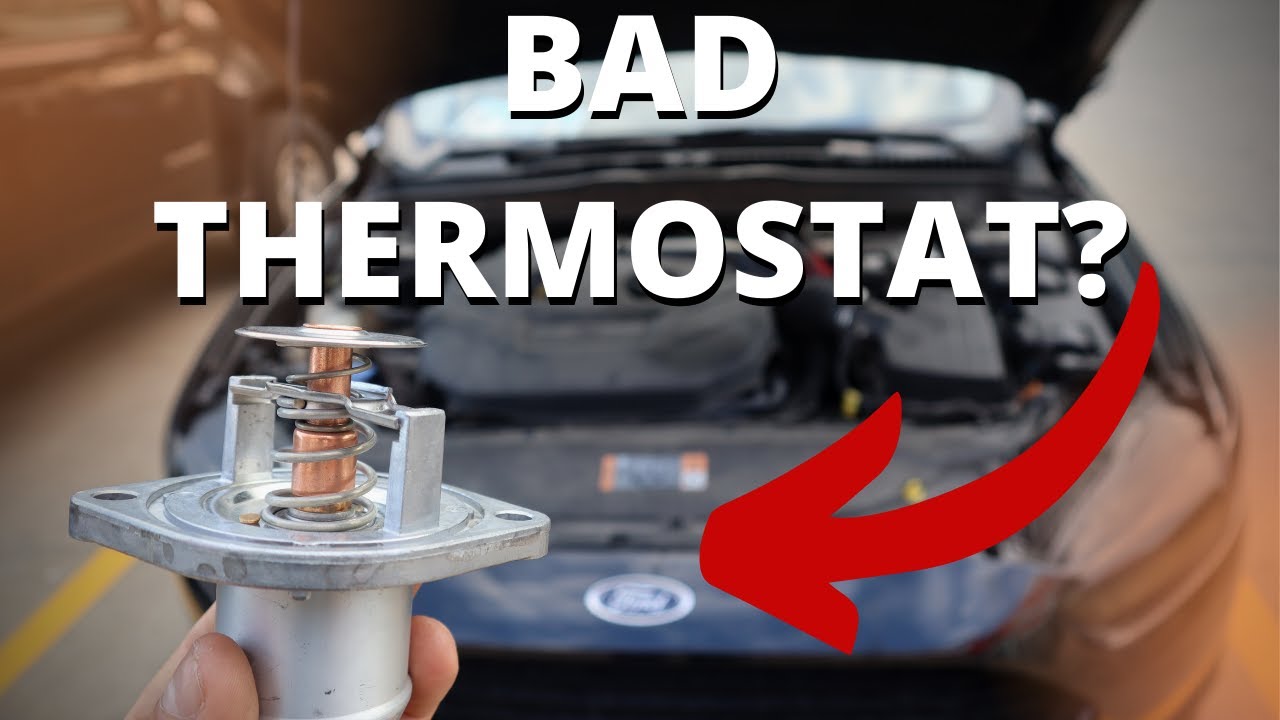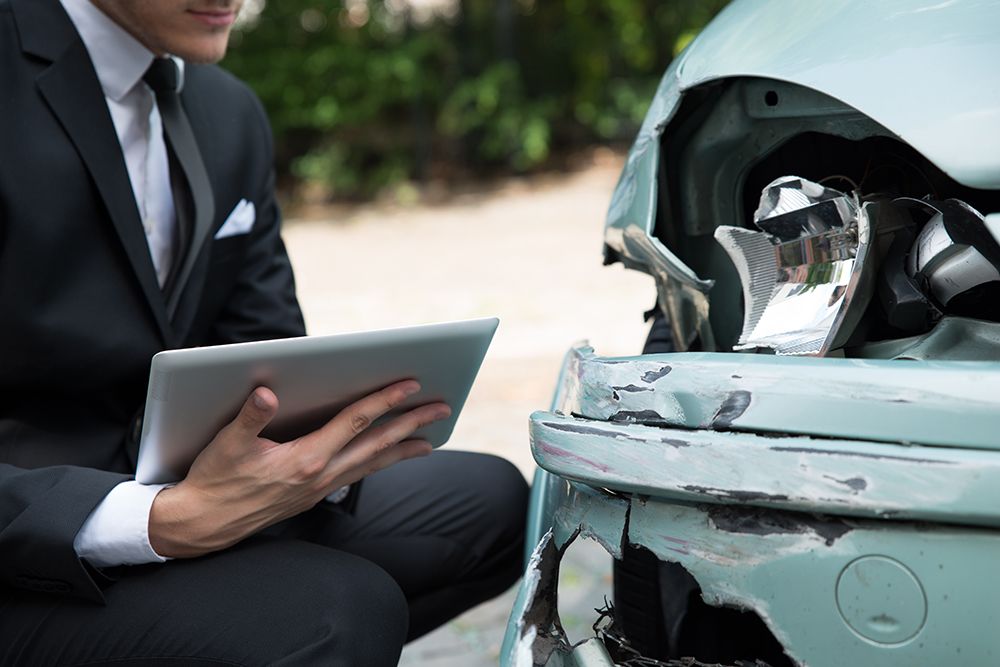Is It Worth Replacing a Starter
Replacing a starter is worth it if your vehicle is otherwise in good condition. A malfunctioning starter can leave your car inoperable.
A functional starter motor is essential for your vehicle’s reliability and performance, springing the engine to life with each turn of the key. Over time, starters wear out and may fail, requiring replacement. For those who depend on their car for daily activities, investing in a new starter ensures that your vehicle remains dependable.
This piece is critical in the ignition process, and ignoring starter issues might lead to more significant repairs down the line. Car owners should note the warning signs of starter failure, such as clicking noises, intermittent starting problems, or no response when turning the key. Early replacement can save time and avoid the higher costs associated with towing and emergency repairs. Therefore, consider the age and condition of your vehicle before deciding, as a new starter can significantly extend the life of a well-maintained car.
Signs Your Starter May Be Failing
Picture this: you’re running late, you jump into the car, turn the key, and nothing happens. The silence in place of a roaring engine can be your first sign of a starter problem. Understanding the signs of a failing starter can save you from getting stranded. Know these symptoms and act swiftly to address them.
Unusual Noises During Ignition
Grinding, whirring, or freewheeling sounds are not good news. These noises suggest that the gears are not engaging properly or are worn out. It’s similar to the sound your car makes when you try to start it again after it’s already running.
Engine Won’t Turn Over
The moment of dread: turning the key and your engine is not responsive. It could be due to a dead battery but if the battery is fine, your starter could be the culprit. This is when it’s crucial to check for other signs to diagnose a starter issue.
Intermittent Starting Issues
Imagine some days your car starts perfectly, and other days it just won’t. These random starting troubles point to a failing starter. Take these intermittent issues seriously before they evolve into a car that won’t start at all.
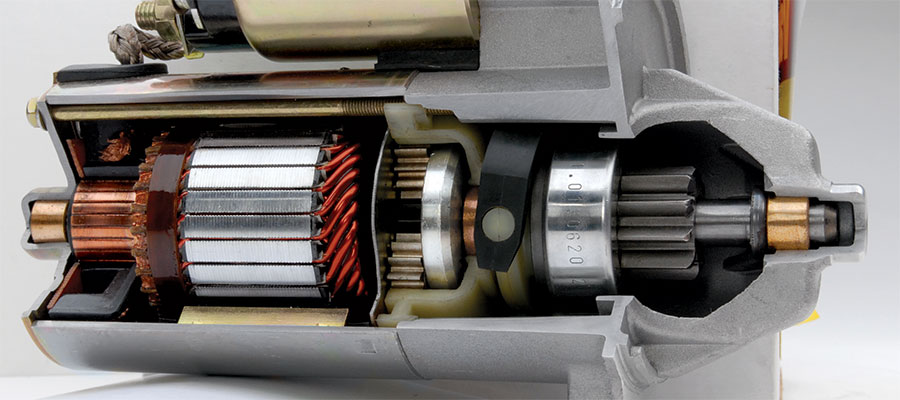
Credit: www.autozone.com
The Role Of The Starter In Your Vehicle
Imagine your car as a living being. The starter is the heart that pumps life into your car’s engine. It is a critical component, initiating the process that powers your vehicle. A failing starter not only jeopardizes your morning routine but can also stress your engine. Let’s explore how this unsung hero works and why maintaining it ensures the health of your engine.
How The Starter Works
The starter is an electric motor that spins the engine to start the combustion process. It engages the flywheel to turn the crankshaft, creating the necessary motion for your engine to take over. Below is an outline of a standard starter operation:
- Battery sends current: When you turn the key or push the start button, the battery sends a current to the starter motor.
- Solenoid acts: The starter solenoid, a small coil, gets the signal and pushes a gear out.
- Engine cranks: The gear meets the flywheel, turns the crankshaft, and your engine roars to life.
This process hinges on precision and timing. A hiccup at any stage can mean silence when you expect your motor to start.
The Connection Between The Starter And Engine Health
A healthy starter means a healthy engine. The starter’s role extends beyond just getting the engine running.
- Avoids undue stress: It ensures that the engine doesn’t face undue wear from struggling to start.
- Promotes longevity: Consistent, seamless starting supports the engine’s longevity and reliability.
- Saves the battery: It prevents battery drain from repeated attempts to start the engine.
A starter in good condition directly impacts the engine’s performance and life span. Be mindful to address starter issues promptly.
A functioning starter means a smooth start every time. If you’re facing extended cranking times or hear a clicking with no start, it’s time to inspect your starter. A well-maintained starter equals a stress-free engine and an uninterrupted drive.
Assessing The Cost-benefit Of Replacement Versus Repair
Assessing the Cost-Benefit of Replacement versus Repair of a starter involves weighing immediate expenses against future savings. This decision affects both your wallet and your vehicle’s performance. To make an informed choice, consider both the short and long-term financial aspects, and how dependability plays a crucial role in your vehicle’s operations.
Short-term Versus Long-term Costs
Initial costs can be deceiving. While repairs might seem budget-friendly now, they may not offer longevity. Replacing a starter promises extended trouble-free use but requires a higher upfront investment. Below is a breakdown:
| Approach | Short-Term Cost | Long-Term Cost |
|---|---|---|
| Repair | Lower | Potentially Higher (due to repeat issues) |
| Replacement | Higher | Lower (considering the new part’s lifespan) |
Considering The Value Of Reliability
Reliability is worth its weight in gold in automotive care. Frequent starter issues can lead to increased stress and unplanned expenses. A new starter reduces the risk of unexpected breakdowns. Consider these points:
- Consistency: A new starter assures predictable performance.
- Peace of Mind: Eliminate the worry of automotive failure.
- Warranty: New starters often come with a manufacturer’s warranty.
In summary, assess both immediate costs and future benefits. Prioritize reliability to ensure smooth vehicle operations.

Credit: www.reddit.com
Diy Versus Professional Replacement
Choosing between a DIY repair or professional help often leaves car owners in a dilemma, especially when it’s about replacing a starter. Car starters play a critical role in igniting engines, and a faulty one can keep you stranded. Making the right choice can save you time and money. Let’s explore the avenues of DIY versus professional replacement to guide your decision.
Tools And Skills Needed For Diy
Tackling a starter replacement requires specific tools and a certain skill set.
- Socket set: For unscrewing bolts.
- Screwdrivers: To disconnect components.
- Jack and jack stands: To lift and support the vehicle safely.
- Memory saver: To keep electronic settings in place.
Beyond tools, confidence and knowledge of car mechanics are essential. Following a service manual or instructional video may aid in completing the process. However, watch out for complexities, as each car model has its nuances. A mismatch of skills or tools could lead to a non-functioning vehicle or further damage.
When To Hire A Professional Mechanic
There are signs indicating a professional service may be necessary:
- Limited experience: Mechanics possess the expertise for accurate diagnostics and repairs.
- Complex car design: Some vehicles have starters placed in challenging locations, making DIY risky.
- Warranty concerns: DIY repairs might void existing warranties. Check your terms first.
- Time constraints: Proper repairs demand time. Busy schedules often call for a mechanic’s efficiency.
A professional mechanic ensures a reliable fix with the reassurance of service guarantees. With your safety and vehicle performance on the line, sometimes it’s best to leave it to the experts.
The Impact Of Vehicle Age And Mileage On Your Decision
Deciding to replace a car’s starter can be tricky. Vehicle age and mileage play critical roles in this decision.
When To Replace On An Older Vehicle
Older cars may seem to run forever. But, like all machines, they eventually need parts replaced. It comes down to a simple choice: repair or replace. Consider factors like the vehicle’s value, sentimental worth, and overall condition.
- Is the cost of a new starter less than 50% of the car’s value? It might be worth replacing.
- Does the car hold personal significance? If keeping it running is a priority, replace the starter.
- Assess the condition of other components. If everything else is in great shape, a new starter could give your car a new lease on life.
Considering Mileage And Wear
Mileage can be deceiving. High mileage doesn’t always mean it’s time for major repairs. It’s the wear and tear that matters more.
| Mileage | Factors to Consider |
|---|---|
| Under 50,000 miles | A starter replacement is rarely needed unless faulty or damaged. |
| 50,000 to 150,000 miles | Wear on other parts may suggest preventive maintenance. Assess component conditions. |
| Above 150,000 miles | A new starter can extend the life of your vehicle if other parts are well-maintained. |
Choosing The Right Replacement Starter
Deciding on the right starter motor for your vehicle is a crucial step. It’s not just about making your car start smoothly again, but also about ensuring longevity and reliability. Starter motors are vital, and picking the perfect one can save time, money, and future headaches. In this section, we’ll explore OEM and aftermarket options, and dive into warranty and quality considerations.
Oem Versus Aftermarket Options
Original Equipment Manufacturer (OEM) starters are made by the car’s maker. They are identical to the starter your car came with. Aftermarket starters, on the other hand, are produced by different companies. Here’s a quick comparison:
| OEM Starters | Aftermarket Starters |
|---|---|
| Perfect fit and compatibility | Wide variety of options |
| Usually more expensive | Can be more affordable |
| Guaranteed to match vehicle specifications | Quality may vary |
Warranty And Quality Considerations
Warranties are essential when purchasing a starter. The length and extent of coverage can be a lifeline if issues arise. OEM starters often come with a standard warranty supported by the dealership. Aftermarket starters may have shorter or longer warranties, depending on the brand:
- OEM starters: Generally, a 1-year warranty
- Aftermarket starters: Warranties vary—some offer none, while others exceed OEM terms
Quality is just as important. Always check the build and performance standards. OEM components tend to have a high level of assurance. Aftermarket parts vary, with some matching or even surpassing OEM qualities. Research and reading reviews from other users offer valuable insights.
- Research brands and read user reviews
- Confirm the part meets or exceeds OEM specifications
- Check for certifications like ISO, which indicates quality manufacturing
Future Maintenance To Prevent Starter Problems
A proactive approach to vehicle care saves time and money. The starter is key to your car’s vigor. Give your starter the attention it deserves. A maintained starter ensures reliability. Let’s dive into how you can keep this crucial component in prime condition.
Regular Check-ups For Electrical Components
Regular electrical check-ups prevent unexpected failures. A specialist will spot early signs of wear. They’ll test the battery, alternator, and starter connection. This detection prevents larger issues.
- Inspect the battery: Clean terminals reduce strain on the starter.
- Alternator testing: Ensures your battery gets proper charge.
- Starter connection: Keeps power flowing smoothly.
Key Maintenance Tips For Starter Longevity
Extend your starter’s life with simple, yet effective care. Follow these tips for longevity.
| Maintenance Task | Benefit |
|---|---|
| Keep it clean: | Removes dirt, ensuring solid electrical connections. |
| Regular oil changes: | Prevents starter contamination. |
| Avoid short trips: | Reduces wear over time. |
Quality parts matter. Use reliable components for repairs. Trust a professional for installation. Proper fitting matters for efficient operation.

Credit: shop.advanceautoparts.com
Frequently Asked Questions Of Is It Worth Replacing A Starter
How Much Does Replacing A Starter Cost?
Replacing a car starter can cost anywhere between $150 to $600. This includes both parts and labor. The price varies depending on the vehicle model and the service provider.
Can A Starter Be Repaired Instead Of Replaced?
Starters can sometimes be repaired, which is often cheaper than replacement. If the issue is limited to components like solenoids, a repair might suffice. Always consult a trusted mechanic for the best option.
What Are Common Signs Of A Bad Starter?
Common signs include a grinding noise when starting, the engine not turning over, intermittent issues starting the car, and a whirring sound without the engine starting. These symptoms suggest a failing starter.
How Long Does A Car Starter Typically Last?
A starter typically lasts between 100,000 to 150,000 miles. However, its lifespan can be affected by factors like the vehicle’s make, model, and starting habits of the driver.
Conclusion
Deciding on starter replacement is strategic for car maintenance. Assessing condition and longevity factors is key. With proper evaluation, a timely swap can save money and prevent breakdowns. Trust experts for guidance, and keep your vehicle running smoothly. Remember, a sound starter ensures a reliable journey.

